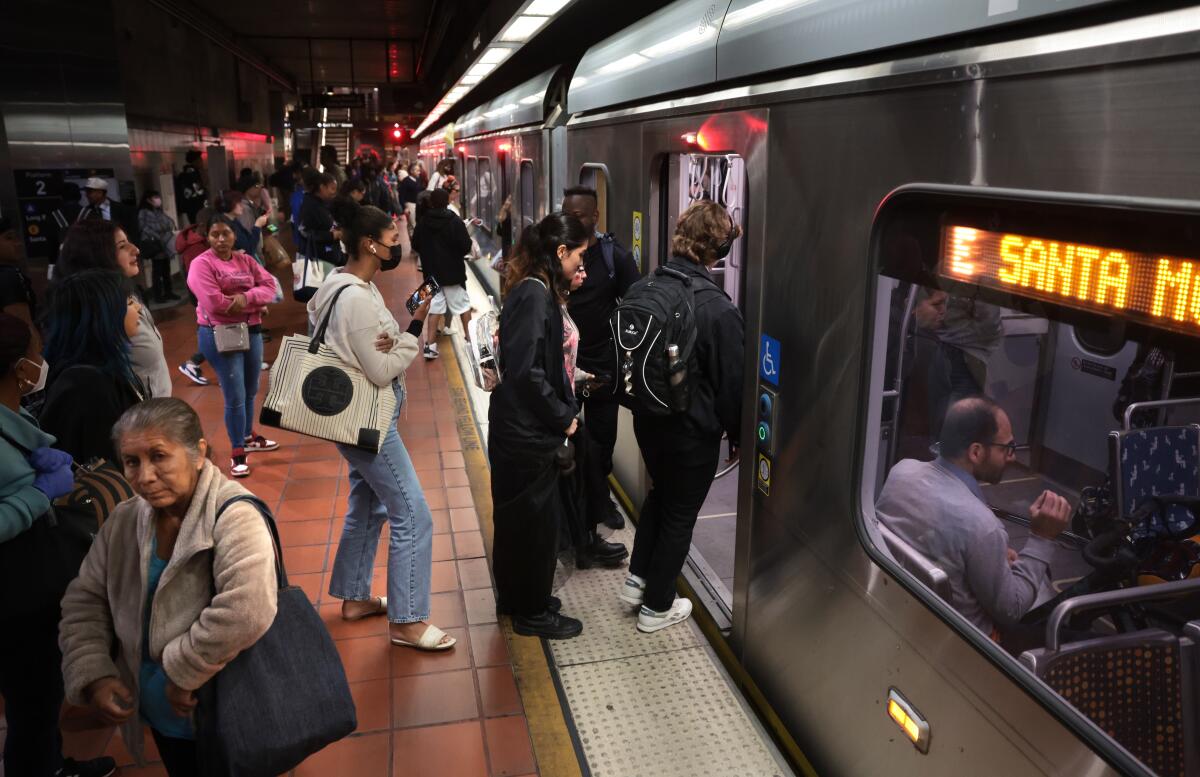Letters to the Editor: ‘Making Metro safer isn’t rocket science’ — a transit rider’s 7-point safety plan

- Share via
To the editor: Making Metro safer isn’t rocket science. (“Mayor Bass orders police ‘surge’ on Metro bus and rail routes amid spike in violence,” May 16)
As a frequent transit user, I have watched police officers text on their phones while crimes were literally happening nearby. I’ve witnessed people get on buses and threaten or hurt other passengers, and then remain on the bus for miles with zero response. Stations are dirty, and elevators and escalators are frequently out of service.
Here’s my seven-point plan to fix the system:
- Require police to actively patrol buses and train and quickly remove unruly passengers.
- Create fast-response teams to wait at the next stop when a passenger is engaged in dangerous behavior.
- Turn on the lights. Many Metro stations are poorly lit with non-functioning lights.
- Provide information on nearby homeless services at the entrances of every station. Make it clear that Metro is a public transportation system, not a homeless shelter.
- Fix elevators and escalators within 24 hours of them going down.
- Clean the stations and trains throughout the day and provide more trash cans for passengers.
- Require city leaders to ride Metro at least once a week so they can experience firsthand the system they want people to ride.
Donald Flaherty Fajardo, Los Angeles
..
To the editor: The crimes occurring on Metro trains and buses fall outside the standard scope of murder, assaults, thefts and vandalism. The crimes inflict harm beyond the individual victims.
Transit crimes delay operations, which can result in passengers missing transfers and therefore getting to work, home or appointments late.
Transit crimes have scared away regular and potential transit riders, making the tax-funded network underperform.
Transit crimes have worldwide implications if they keep people away from riding buses and trains. A key component in fighting climate change is reducing our driving of vehicles.
With such important ripple effects, enhanced sentencing should be applied to these crimes to make it clear how serious they are.
Matthew Hetz, Los Angeles





